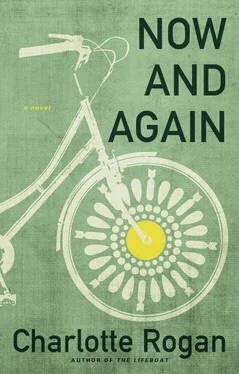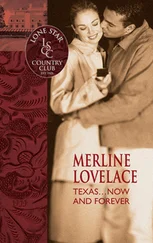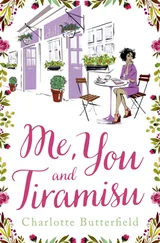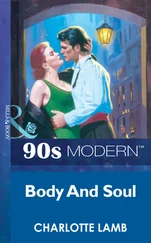It was Sinclair’s turn to give Falwell a questioning look.
“Sun Tzu,” said the colonel.
“But I sent them before the orders came through.”
“I heard the men were causing trouble,” said Falwell. “And the supplies got to where they were needed way ahead of schedule. It’s conceivable that the entire convoy would have been ambushed if it had started later. You might have saved something even worse from happening. Did you ever think that those first trucks only got through because of you?”
“Five of my men were killed and others were injured. What could be worse than that?”
Penn blinked and lowered his eyes. When he raised them again, the colonel was blinking too and the questioning look was gone.
“No person on earth is sorrier about that than me. No one. Not a single fucking person cares more about his troops than I do. But it sounds like they were out of line and you tried to control them. You just couldn’t control the Iraqis. If you could, you’d be sitting here instead of me.”
The rising sun cast the room in a warm and almost otherworldly glow so that with a little effort, Penn might have convinced himself that he would walk outside to find a row of beach umbrellas and smiling waiters peddling the illusion that the world was a beautiful place and that those who weren’t yet happy would be after another mai tai or a hot stone massage or a leisurely swim in the blue-black infinity-edge pool.
“So, what?” asked the colonel. “You want to be punished, is that it? Well, that won’t solve a goddamned thing.”
“I made two bad decisions in a row. First to send the convoy before receiving the orders, and then to split the platoon.”
“And why were those bad decisions?”
“Because they led to unnecessary deaths.”
“The end justifies the means, then? An action is good if it leads to a state of affairs that is better than the one you started with? Setting aside the well-worn tropes about torturing or killing some people in order to save others — we’ve all heard those arguments a thousand times — how does focusing on the consequences provide guidance about what a person should do? Here you are, assessing your options, and you decide that sending the convoy will accomplish more than not sending it. But in the end it doesn’t, so now you determine that your action was bad. The problem with this theory is that you can only see what you ought to have done after the fact.”
“In any case, I want to take responsibility for it. And I want to keep from doing any more harm.”
“There’s an easy answer, then,” said the colonel. “Go ahead and shoot yourself now. Or join a monastery.”
Penn tried to take a sip of his coffee, but the cup was shaking in his hand, so he put it back down and checked out the daughters again, calmed somewhat by their innocence or whatever it was that allowed them to look so alert and oblivious at the same time. One of them was prettier than the other, but he could tell that the second one had bigger — well, the word that came to him was “balls.” She reminded him of Louise, except that Louise would have managed to convey that behind the perky smile was an important itinerary, and only by rigidly sticking to it had she carved out that moment of relaxation and fun. Still, they had the same assured look, a look he recognized because he used to have it himself. He owed Louise a letter or an email, but he didn’t know what he would say to her or what he would want her to say in reply.
“Call me a pragmatist,” said the colonel, “but I don’t believe there’s a single, unified answer to any of the questions we might ask ourselves about how a person decides what to do. Should I be concerned with the consequences? Of course I should. Mostly I don’t lie, but when the Nazis come knocking, I don’t tell them where Anne Frank is hiding. I take my best shot given the available time and information — that’s the thing I’m paid to do. Anything more than that is above my pay grade, and certainly above yours.”
“But if I’d waited a little longer, thought a little harder…”
“There are the thinkers and there are the doers, Sinclair. The thinkers sit around in their libraries talking in circles about what is morally required or permitted — you can’t judge a person without considering his actions, and you can’t judge actions without considering consequences. But consequences can’t be predicted with any accuracy, so you talk about intentions — and where does all that mumbo jumbo leave us? It leaves us exactly where we are. Someone has to be out here on the front lines doing something about all the shit in the world, and that’s us. We’re the doers, Sinclair. We don’t have the luxury of waiting until we’ve got the theory all worked out. While those guys are trying to come up with answers — and don’t forget, they’ve been trying for thousands of years — life is happening all around us.”
“And death,” said Penn.
“Which is a really lousy part of life,” said the colonel.
“It’s not really part of life,” Penn started to say, but he wasn’t sure of his ground, so he stopped.
The colonel got up and poured himself another cup of coffee. He looked at Penn and then past him at the scratched plastic window and the yard where groups of soldiers had started to move about, their faces glowing in the morning light as if lit from within. “To avoid criticism, say nothing, do nothing, be nothing,” he said.
“Aristotle?” asked Penn.
“Elbert Hubbard, whoever the hell that is.”
The colonel rose and moved toward the door. The morning light hit the crevices of his face, but when he turned, his features were erased by shadows. “I’m going to be perfectly honest with you, Sinclair. I don’t much like confessions.”
“Sorry sir.”
“Do you know why I don’t like them?”
“No sir.”
“They create problems is why. And I think you’ll agree we’ve got problems enough.”
“Yes sir,” said Penn, gesturing toward the pages Falwell was holding but hadn’t read. “Anyway, it’s all in there.”
“Which computer did you write this on?”
“My personal computer, sir.”
“Are there other copies?”
“No sir.”
“Good.” Falwell walked to where a waste receptacle was nestled in a corner of the room. He put the pages in the receptacle and lit a match, and they both watched as the paper burned. “You didn’t email this to anybody, did you? You didn’t save it on a disk?”
“No sir.”
“See that you don’t. You go delete that file and then you empty the trash bin on the computer and then you never mention this to anybody again. And when the incident report is written up, make sure it’s routed through me.”
“Yes sir,” said Penn. Then he added, “I think I cared too much about the school. And I cared too much about how I looked to the other officers. I let those things overshadow my duty to my men. That’s the thing I can’t forget.”
“You sent some troops on a mission that might or might not have been poorly timed, which had the side benefit of letting some hotheads cool off. The orders changed and you adapted the best you could according to the information you had at the time. Hindsight is twenty-twenty, Sinclair. But I’m glad you told me about this. I’ll write a press release. We’ll inform the next of kin.”
Penn said, “Yes sir.” He moved the untouched coffee from his knees to a table.
“You’re like me, Sinclair. The army needs us, but we need the army too.”
As Penn left the hut, the weight that had been pressing down on him since the afternoon before left his shoulders, but it settled somewhere deep inside his rib cage. When he got back to his quarters, he deleted his confession, but only after emailing it to his civilian account and only after enclosing a printed copy in an envelope and addressing it to himself care of his mother, who would recognize the handwriting and wonder vaguely why he was writing to himself. Then she would carefully sort the envelope from the bills and invitations, and the next time she went upstairs, she would put it in the top drawer of the antique chest that stood in the hallway underneath the Sinclair family crest with the rooster on it and the words they repeated at holiday gatherings but otherwise forgot: COMMIT THY WORK TO GOD. She would recognize his handwriting, but she wouldn’t open the envelope the way Louise would open it if he sent the letter to her.
Читать дальше












